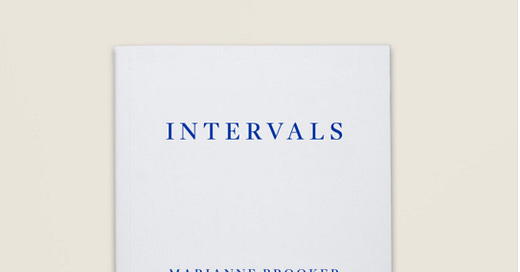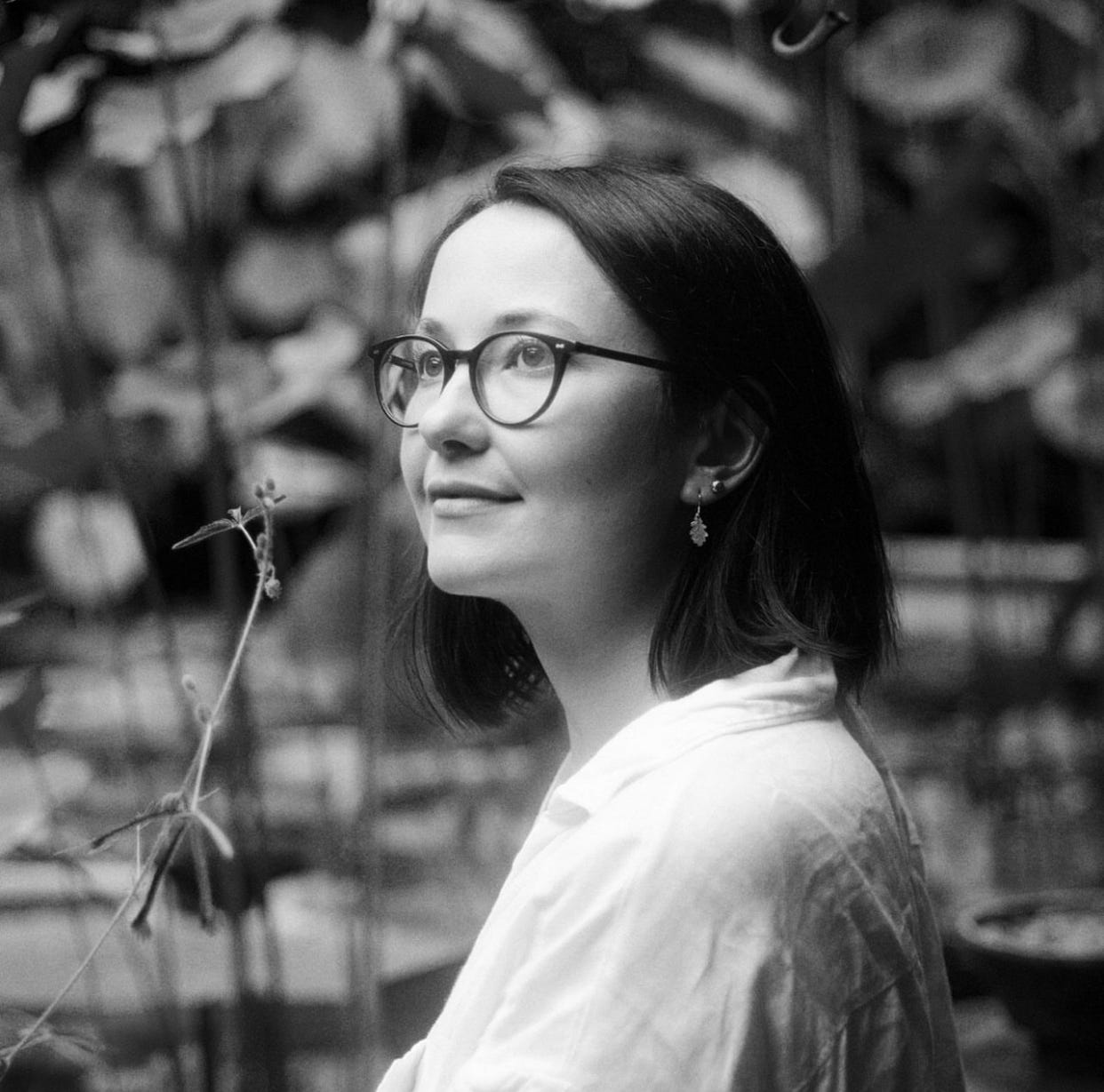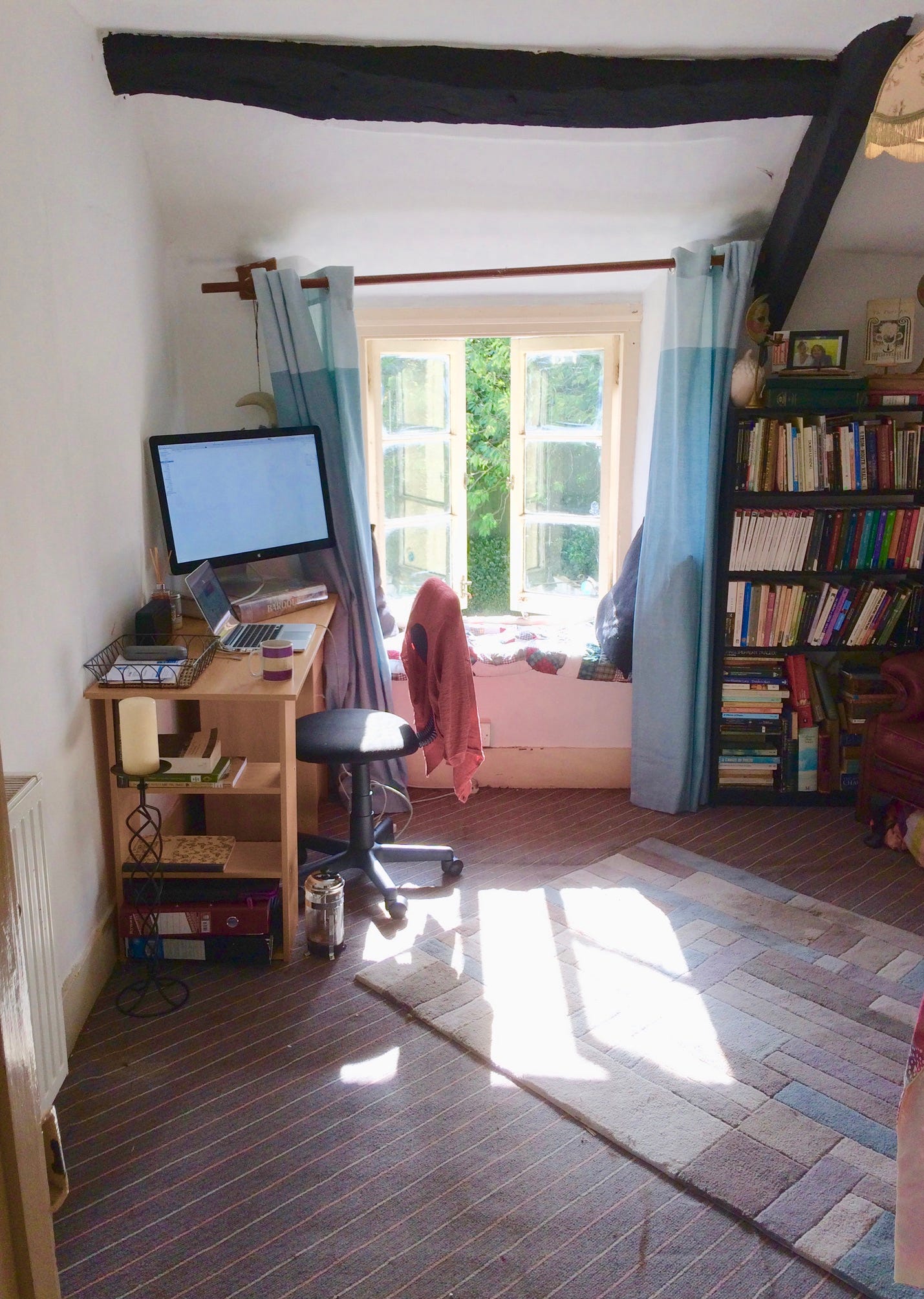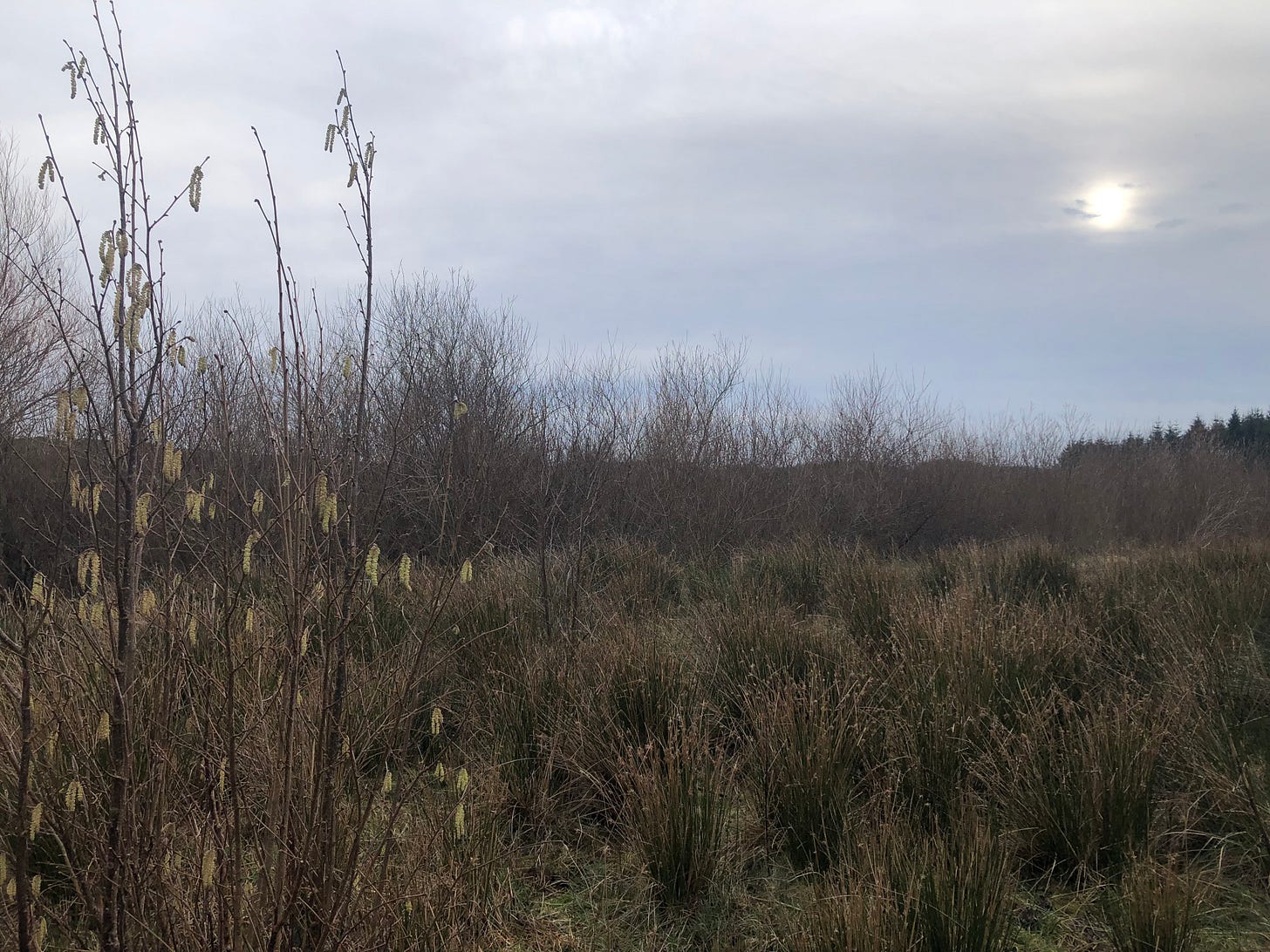What does it mean to care?
How do we love in a way that holds, at its core, the wholeness of the ones we love?
What is a good daughter, mother, patient, carer?
When we make our way towards the horizon of the great unknown, what will have mattered?
What does it take to let go in peace?
I had the honour of reading an early copy of INTERVALS, Marianne Brooker’s gorgeous, heartbreakingly honest telling of her mother’s death, which publishes today.
It is a book that holds, deep within, the idea that there is beauty in the ending of a life, especially when meditative and intentional care is offered. When we listen openly. When we pay tribute, through our actions, to the life lifted by the person; the traces they have left in this gorgeous, aching world.
‘Through witnessing, I would give her pain a life outside the fragile borders of her vulnerable and much-lived body. However close we get to another’s pain, it’s still ‘shrouded in mystery’. Empathy teaches us that we can feel as one another…loose witnessing is the basis of an important ethical and political demand, no less powerful for it’s leap of faith. In [Sara] Ahmed’s words:’I must act about that which I cannot know, rather than act insofar as I know.I am moved by what does not belong to me.’’
It is my absolute honour to be able to share an interview here with Marianne, and to let you know that she will be joining me in conversation via zoom at 18.30 GMT on Tuesday 5th March. It was my intention to offer this to my paid community but I want everyone to hear this message of hope and the healing power of care and love so we are offering this to everyone. All subscribers will receive this link, and we would ask you to make a donation to MAP if you attend.
I hope you enjoy these gorgeous reflections below as much as I did…
Could you tell us in a few lines what your book is about and who you feel would find comfort in it?
Intervals describes living with my mum as she hastened her death, exploring questions of choice, care and creativity under austerity. I’m not sure whether this story offers comfort - I hope that it has a gentleness to it, but I also hope that it moves people. Perhaps anyone who has tried to care for someone (or for themselves) and felt their attempts thwarted by inequality will find comfort in knowing - as so many other writers have also shown - that they are not alone. I hope that comfort, fleeting as it is, precedes a sense that we can reimagine the world in which we live and die.
What made you decide to write your beautiful, important book?
For a while, I saw my mum in all the books I read and news stories I railed against; she was everywhere and nowhere. Witnessing her death was intense and intimate, something I felt simultaneously protective of and desperate to show the world. I wanted to show something of what it was like: living without a social safety net, in a society that treats dependency as a drain on resources, and to explore how that context presses on our notionally autonomous choices.
How did writing it feel given it is a book of deeply personal experience?
Sometimes writing has a distancing effect - making a subject of a person, an idea of an experience. I find that helpful, personally and intellectually. But sometimes writing brings me closer - a way to feel as well as a way to think; a moth to a flame.
Annie Ernaux describes how writing about her late mother was like experiencing the times they spent together again, only to crash back into a world in which she no longer lives: ‘In these circumstances, to publish a book can mean nothing except the definitive death of my mother’. I felt that quite acutely as I started writing: as if writing her death would confirm something that I still quietly denied, and wanted to keep denying. I had to approach parts of the book very slowly for this reason - circling cautiously before falling in. I feel a little hardened to that now, but it still shocks me sometimes.
What does the creative process look for you? I would also love an image of where you write.
My partner gave me a roll of plastic paper that sticks to the wall with static. Fixed on the idea of writing a book, I took two weeks’ annual leave, stuck it up in my bedroom and drew a big timeline of events and scenes I wanted to depict. Below, I mapped out concepts that I could explore through each scene and writers I could draw on to illuminate things. I think quite visually and associatively, so this helped me a lot. At the end of the fortnight I had a chapter structure (which faintly resembles the published book) and a writing sample.
I was extremely lucky in that winning the Fitzcarraldo Essay Prize came with a 5 week residency in Spoleto, Italy, which I squeezed into a middle space between changing jobs. The book found its feet at a table in a mediaeval tower in the most beautiful part of the world I’ve visited. I learned that I like to write mid-morning (though normal life makes this scarcely possible), and that I almost always have my best ideas when I’ve tried and failed to write, then gone for a walk. Back home, I’m luckier still to have a spare room and a small desk next to a big bookcase; I mostly write from here.
Image below is where Marianne worked at her mother’s home in Devon, 2015
In your book there is such fine attention to tending and tendering and I wonder how easy or hard that is to weave into the act of writing for you?
I actually didn’t expect to write as much as I did about tending to plants, art objects and one’s own body as I did. This writing first emerged from the residency: the textile designer Maïté Ouceni did a studio tour where she showed us dried flowers she was using to make natural dyes. It reminded me of my mum’s jewellery making and her garden. The pamphlet ‘Inventive Forms of Love’ (borrowing its title from Anne Boyer) emerged from there and grew into the chapter ‘Mother of Invention’. The principles of making, tending, repairing came to form a really central part of the ethics of care explored in the book.
Finally, at the heart of this book, for me, is the idea of LOVE, simply. Would you be able to speak a little of what this word means for you - politically, personally - and if that has changed any through the writing of this book?
Yes! My own understanding of love has been so expanded and enriched through reading. Sophie Lewis writes that ‘To love a person is to struggle for their autonomy as well as for their immersion in care’ - to allow someone their separateness or a capacity to live on their own terms, while also acknowledging and deepening the ways in which we are so tightly interdependent, so in need of one another. This really helped focus my thoughts on the relationship of dependence and doubt to choice, without getting mired in shame or individualism. There’s such brilliant, beautiful work being written about revolutionary love at the moment: Anne Boyer, Gargi Bhattacharya, Christina Sharpe and Sophie K Rosa are some of the authors I regularly go back to on this.
More personally, I found myself writing a lot about childhood games and stories; the love my mum showed to me as she died; the love I felt from my friends. I wanted the book to testify to that love, to preserve it, to share it.
The work of other creatives is at the heart of this gorgeous book, and I asked Marianne if she would share with us a few of the books and songs that delivered solace and comfort to her during the writing process.
These beauties are listed below.
Twelve Books
Anne Boyer - The Undying
Lola Olufemi - Experiments in Imagining Otherwise
Carolyn Steedman - Landscape for a Good Woman
Annie Ernaux - A Woman’s Story
Simone de Beauvoir - A Very Easy Death
Emily Berry - Unexhausted Time
Marion Milner - On Not Being Able to Paint
Christina Sharpe - In the Wake
Maggie Nelson - The Argonauts
Christina Crosby - A Body Undone: Living On after Great Pain
Sara Ahmed - Wilful Subjects
Katie Engelheart - The Inevitable
Six Songs
Lisa O'neill - The Globe
Eoghan Ó Ceannabháin - The Deepest Breath
Lizabett Russo - The Back Leg of the Fox
Tracy Chapman - She's Got her Ticket
Joni Mitchell - Got the Urge for Going
Leonard Cohen - So Long Marianne
I am so grateful to Marianne for this open, glistening exchange, and you can order her important book- so full of love and witnessing and hope in action- here.
The zoom link for our conversation on Tuesday 5th March 18.30-19.15 GMT will be with you all very soon. X









I just went to her launch in Bristol and it was so lovely to hear her read and be interviewed. We met when we both did a PhD at Birkbeck. Lovely that you did this and gave an early quote.
I’m so looking forward to this. Thank you.